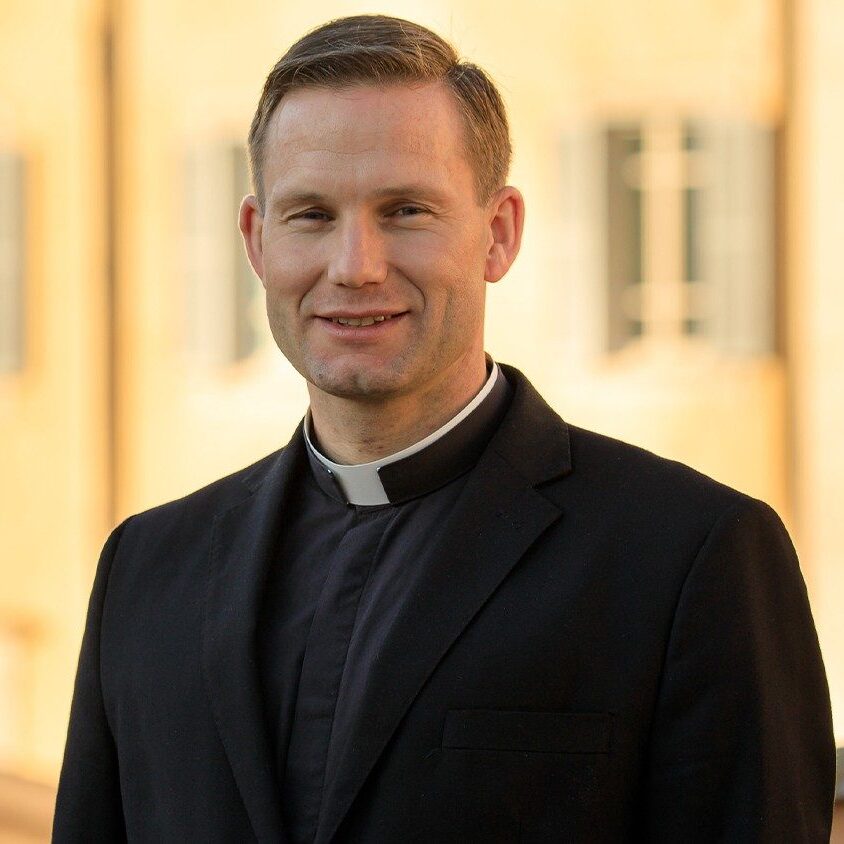|
Getting your Trinity Audio player ready...
|
The Pope’s Exorcist, a film supposedly based on the memoirs of Fr. Gabriele Amorth, who held the office of the chief exorcist in Rome for a long time, was released earlier this year in cinemas. The film opens with a quote from Fr. Amorth: “When we jeer at the Devil and tell ourselves that he does not exist, that is when he is happiest.” This quote is probably the only thing about the film, starring Russell Crowe, that is truthful about Fr. Gabriele Amorth; everything else is misrepresented or distorted.
Yet the theme is fundamental because bold demonic action is on the rise, mainly due to the fact that sin is not only tolerated in society but even publicly celebrated. This is not what the film is about, but it is the basis of Fr. Gabriele Amorth’s ministry. It should be noted that Fr. Amorth was not, in fact, the exorcist for the pope but, rather, for the city of Rome.
Exorcisms are sacramentals, on which I have recently published a book. In it, I dedicate an extensive chapter to the subject of exorcisms and place it in the context of what theologians describe as “preternatural reality.” It means that demons operate in an order that surpasses the natural but is less than supernatural. The Latin word praeter indicates a realm that goes beyond the natural possibilities of any human being. In other words, demons cannot work miracles, but they can produce phenomena that appear miraculous to us because they exceed the power of the natural order. There are many references to this in Sacred Scripture.
Orthodox. Faithful. Free.
Sign up to get Crisis articles delivered to your inbox daily
Fr. Gabriele Amorth (d. 2016), who performed exorcisms almost every day, suspected that a lack of faith was the root cause of an opinion circulating—even within the Church—that denies the preternatural reality of the demonic reality. Consequently, this topic, which is indeed of increasing importance, is left to secular media (and Hollywood), while the Church focuses its attention on other issues such as climate change and immigration. In this way, and this is tragic, the quote presented at the beginning of the film proves to be true.
Nevertheless, the Church has at its disposal a whole arsenal of means intended to help people, to free them from the slavery of sin and evil, offering salvation and healing. Along with the sacraments, the sacramentals are powerful means that require faith in order to release their power. In fact, besides temptations, which correspond to the ordinary action of the devil, there are also―and increasingly so―extraordinary actions of the devil.
The International Association of Exorcists distinguishes between four different categories that can afflict people. However, the first step in liberation is always a life lived in a “state of grace,” i.e., in communion with God. Regular reception of the sacraments, on which Fr. Gabriele Amorth placed special emphasis, helps us to live in a state of grace.
The influence of evil spirits can, therefore, manifest itself on four different levels. The first level is infestation (infestatio), when demonic powers come into possession of inanimate objects, like places, houses, or animals. A second category of extraordinary diabolic action is called vexation (vexatio), consisting of physical aggression against a person. The third category is called obsession (obsessio); it is an interior torment on the psychic level. This one is difficult to discover, but it is very common. Finally, there is possession (possessio), when demonic spirits exercise despotic control over a human body using their preternatural powers.
Sacramentals are defined as “sacred signs which bear a resemblance to the sacraments: they signify effects, particularly of a spiritual kind, which are obtained through the Church’s intercession.”
If the faithful are properly disposed, they can receive major graces through them. Sacramentals are not mere superstition or magical practices, they follow the logic of faith. “Faith is our response to a word which engages us personally,” it connects the believer with God so that divine grace can unfold its power; and God’s power is stronger than any power of the evil one.
What I have outlined is necessary in order to have a basic understanding of exorcisms and all sacramentals. Exorcisms are powerful sacramentals that can liberate people, objects, and places from the power of evil. They follow the Pauline principle that states: “Do not be conquered by evil but conquer evil with good” (Romans 12:21). When we put on the armor of faith, then as the Lord has promised: “Nothing will be impossible for you” (Matthew 17:20).
In no case, however, should the Church and the Church’s preaching leave these issues to the secular world, which is not rooted in the principles of faith but often, rather, in esotericism, magic, and horror and can thereby only produce a distorted image of the reality of exorcism. We must encourage both clergy and lay Catholics to obtain the information that is needed to understand how exorcism and sacramentals can benefit the believer. We must not succumb to the devil’s lie that he does not exist, and, further, we must use the means at our disposal to combat him.
[Image Credit: Shutterstock]
